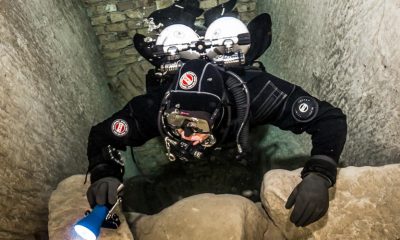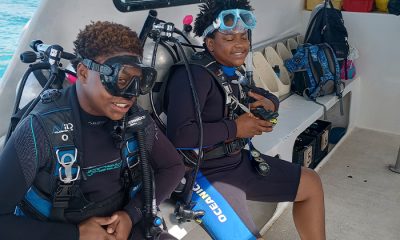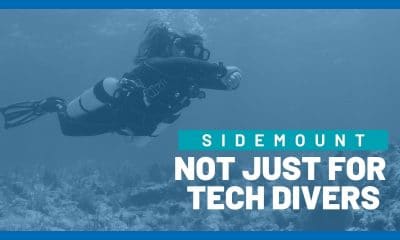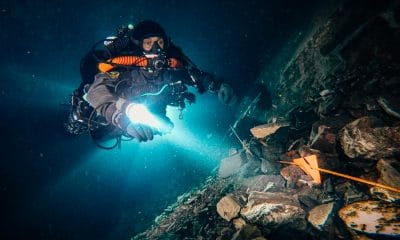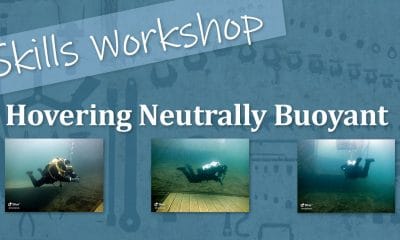Blogs
Myth – Hydration is the most important factor in avoiding DCS

By Mark Powell
The maintenance of a good state of hydration is generally considered to be very important for overall health and dehydration can have significant implications on health and exercise performance. Dehydration has long been considered by many divers to be one of the most significant, or even THE MOST significant, factor in DCS risk other than following correct dive profiles.
The idea that hydration is the most important factor in avoiding DCS has been repeated so often that it is taken as an undisputed fact. Many diving manuals repeat this misconception and there are countless articles online which make the same point.
As we have already seen in this series, just because something is repeated over and over again, does not mean it is a fact and widely believed rules are sometimes found to be based on no evidence at all.
Historically there has been very little research on this point, as it was taken to be self-evidently true by many, although rejected by others. There were only a very small number of studies investigating the topic although in recent years this gap has been slowly been addressed as researchers have tried to prove or disprove the idea.
If we look at the scientific evidence for the impact of hydration on DCS risk we can find one paper from 2007 which showed that diving causes dehydration [1]. Another showed that prehydration resulted in a reduction in bubbling post dive [2] and a third showed a reduction in DCS risk [3] although there were some queries about this study. None of these were conclusive and the reduction in bubbling and DCS risk was not huge. This seemed to imply that the benefits of hydration have been overstated at best and does not have anywhere near the impact that was believed. This is especially true when compared to the impact of other forms of preconditioning such as vibration or sauna or when compared with other factors such as temperature which provided a much bigger change in DCS risk.
However, some more recent papers seem to show that hydration does indeed have an impact on DCS risk although less than many other factors such as temperature and exercise [4].
At the same time that the benefits of hydration were being questioned, the risks of over overhydration were starting to be considered.
In particular, excessive overhydration (hyperhydration) can increase the risk of immersion pulmonary edema. However, in some circles this has been misinterpreted as meaning that a normal level of hydration is bad as it increases the risk of this condition.

MYTH – Hydration increases the risk of IPO/IPE
Immersion pulmonary odema/edema (IPO/IPE) occurs when fluid leaks into the alveoli in the lungs. This results in sudden shortness of breath, cough and sometimes blood-tinged, frothy sputum.
IPO was once considered rare, but is now more widely recognized. While the actual numbers of cases are unknown, it is most likely underdiagnosed. This might be because:
- It is difficult to detect in fatalities.
- It can be mistaken for drowning.
- Mild cases of IPE can resolve spontaneously.
Factors contributing to IPO may include:
- Hydrostatic pressure gradient
- Cold-induced vasoconstriction
- Exertion
- Hydrostatic gradient between mouth and alveoli
- Inspiratory resistance caused by the regulator
- Increased gas density at depth
- Excessive pre-dive hydration
- Hypertension
Many of these factors may be present in adventurous or technical diving. Divers Alert Network (DAN) recommends that you abort the dive as quickly and safely as possible if you experience:
- Sudden shortness of breath.
- Persistent cough.
Upon surfacing breathe 100 percent oxygen and postpone further diving until you can consult a physician.
Although mild cases of IPO can resolve without further treatment once a diver has exited the water, respiratory distress while diving can be extremely dangerous. IPO becomes an even greater concern when you face an extended decompression obligation. Here you must balance the risks of:
- IPE symptoms worsening if you remain under water.
- Suffering DCS if you shorten or skip decompression stops.
You will notice that in the description above, one of the factors contributing to IPO is listed as “Excessive pre-dive hydration”. As mentioned earlier this has, in some circles, been misinterpreted as meaning that hydration is bad as it increases the risk of IPO.
When considering hydration levels, it is important to remember that there are three relative states. Which in layman’s terms we describe as dehydration, proper hydration and excessive overhydration. I have avoided the more scientific terms hypohydration, euhydration and hyperhydration in order to make this explanation more accessible to the non-scientist.
As proof that this myth exists, I have included below an extract from a genuine email I received from one of my students;
“I genuinely believed (I don’t know where I got this from) that if you drink anything before a dive, you’re putting yourself at risk of getting IPO. I didn’t realise the shear amount you actually had to drink to increase that risk. So on occasion I’ve had a tea between dives and then jumped in for a second dive and in the back of my mind be thinking ‘I hope I don’t start coughing uncontrollably now and give myself IPO because of that tea’”
One of the most commonly referenced articles on IPO, and an article that the student above had definitely read, contains the following quote [6] “I am particularly concerned that many divers overhydrate with fluids before a dive, in the belief that it will protect them against decompression illness. The evidence that it protects is not convincing. In contrast there is unequivocal evidence that excessive hydration increases the risk of IPO in both divers and swimmers. Overhydration has an additive effect on the increase in alveolar capillary pressure resulting from immersion. So I strongly advise divers not to overhydrate before diving.”
As you can see this does not state that an extra cup of tea will cause IPO but you can see how a myth could grow from this. It is easy to take the statement “I strongly advise divers not to overhydrate before diving.” and misremember it as “I strongly advise divers not to hydrate before diving.” This advice does not distinguish or give any advice on where is the line between hydration and overhydration? Is that extra cup of tea enough to tip us over the line into overhydration?
To answer the question about the difference between hydration and excessive hydration it worth looking at the article described as ‘unequivocal evidence’ in [5]. This refers to a study carried out on military swimmers.[6] An extract of the study is shown below; “Thirty young men on a military fitness training programme were engaged in a swimming time trial over 2.4 km in the open sea. The sea was calm and the measured water temperature 23°. They swam in the supine position wearing only a bathing suit and using fins. Because of the high heat load expected, the swimmers had been instructed to drink large quantities of water before the swim, to avoid becoming dehydrated. They each drank about five litres of water during the two hours preceding the exercise.”
Five litres (8.8 pints) is a huge volume of water to drink in a two-hour period. For someone who was already well hydrated it could easily put them into a position of hyperhydration. Although it might not be a problem for someone who started out in a dehydrated state. The key point is that there is a big difference between proper hydration and excessive overhydration (hyperhydration). A large glass of water, a 1 litr bottle of water or even a large mug of tea is not excessive overhydration.

Conclusion – Myth or not?
Hydration does indeed seem to be a factor in DCS risk and it seems clear that being properly hydrated is a good thing for health in general and also for diving. Hydration is not be the most important factor in reducing DCS risk but anything that reduces DCS risk at all is a positive thing. Excessive overhydration can increase the risk of IPO but excessive overhydration is not the same as being properly hydrated.
Being properly hydrates gives some advantages in reducing DCS risk and likely does not create undue IPO risk. As in so many areas of life there is a balance. Do not dive while you are excessively dehydrated and do not dive while you are excessively overhydrated. Stick to the Goldilocks zone – not underhydrated, not over hydrated but just right.
How to hydrate
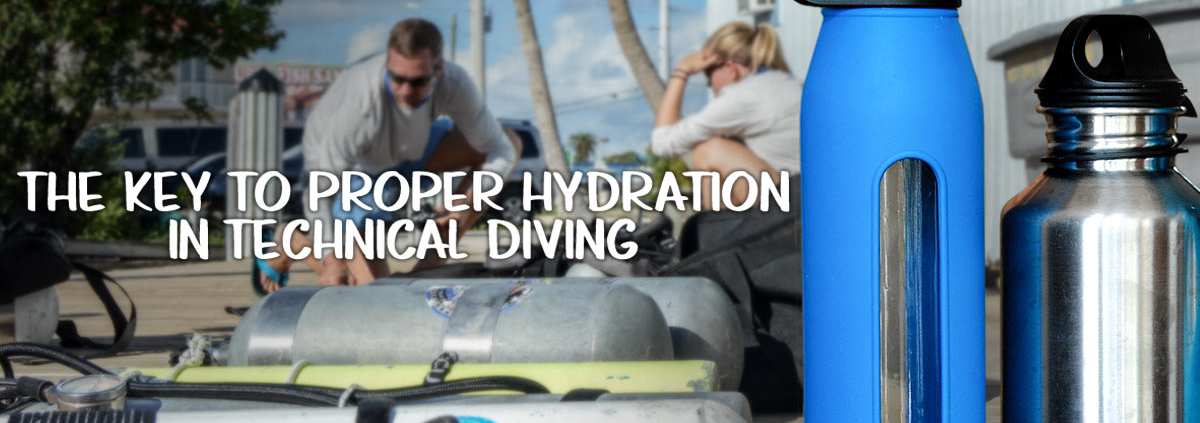
The other conclusion we can draw from this discussion is that educators, scientists, researchers, speakers and writers need to be careful about the impression we create. An article or conference presentation may contain perfectly truthful information but that can be misinterpreted and be seen as promoting a very different conclusion to the one intended. This is exactly how myths develop.
Thank you to Neal Pollock who reviewed several early drafts of this article to ensure that my attempts to explain these concepts in non-scientific language did not lose any of the scientific validity. Any errors or misunderstandings are still down to me.
References
[1] Williams ST, Prior FG, Bryson P. Hematocrit change in tropical scuba divers. Wilderness Environ Med. 2007;18(1):48-53.
[2] Gempp E, Blatteau JE, Pontier J-M, Balestra C, Louge P. Preventive effect of pre-dive hydration on bubble formation in divers. Br. J. Sports Med. 2009;43:224–228.
[3] Fahlman A, Dromsky DM. Dehydration effects on the risk of severe decompression sickness in a swine model. Aviat Space Environ. Med. 2006;77:102–106.
[4] Wang Q, Guerrero F, Theron M. Pre-hydration strongly reduces decompression sickness occurrence after a simulated dive in the rat. Diving Hyperb Med. 2020;50(3):288-291.
[5] https://www.bsac.com/news-and-blog/the-hidden-killer-immersion-pulmonary-oedema-ipo/
[6] Weiler-Ravell D, Shupak A, Goldenberg I, Halpern P, Shoshani O, Hirschhorn G, et al. Pulmonary oedema and haemoptysis induced by strenuous swimming. BMJ. 1995;311:361.
Blogs
Best of British Diving

The UK Dive Season has begun, so to get you all excited about the adventures that await you this Summer, we’re throwing the spotlight on some of the fantastic dive spots that can be found in UK waters.
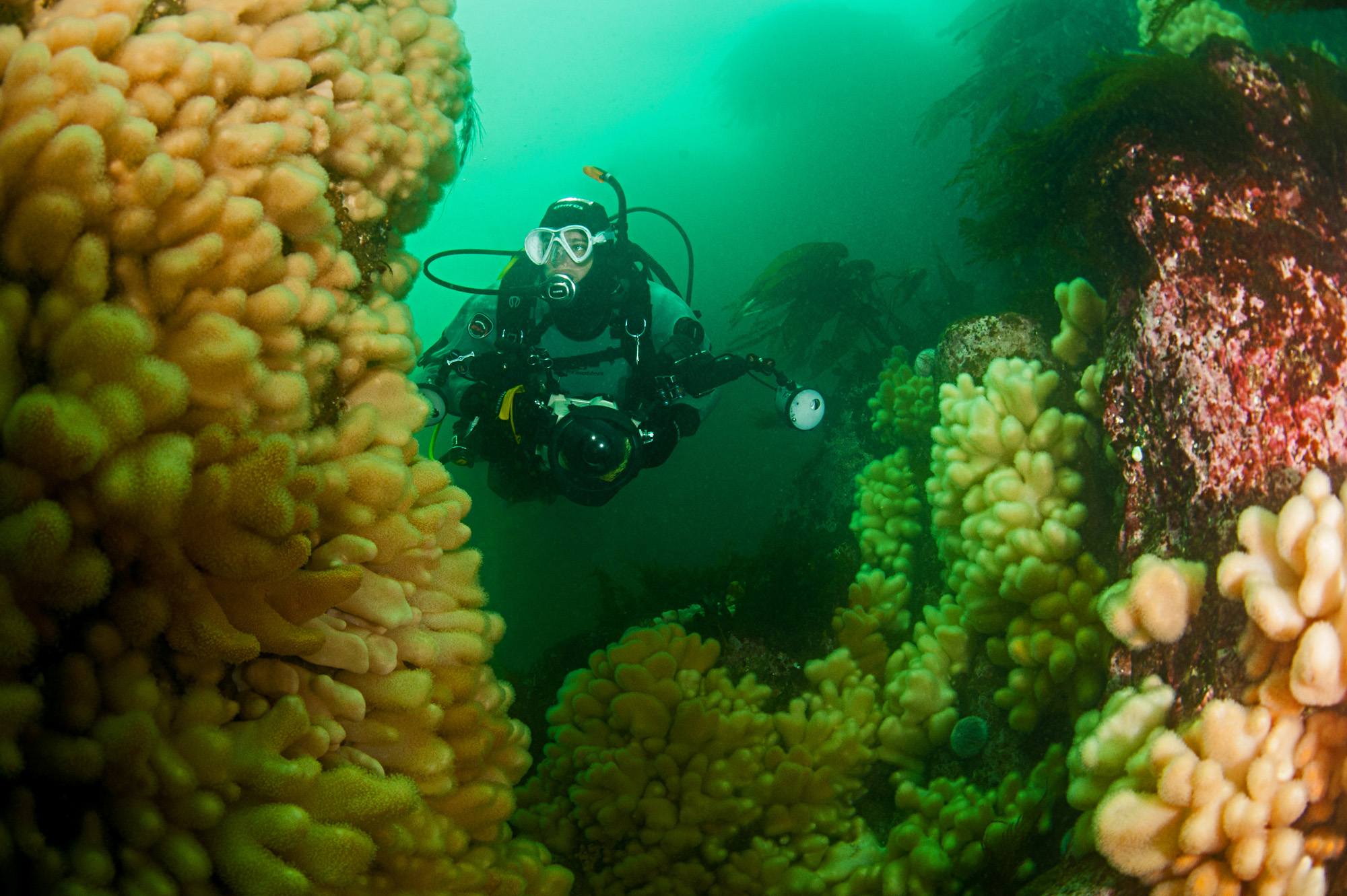
You’ve got to make sure you’ve got the right kit for the job, of course, so we’ve teamed up with some leading dive equipment brands who offer the gear you’ll need to experience UK Diving.
So let’s get started!
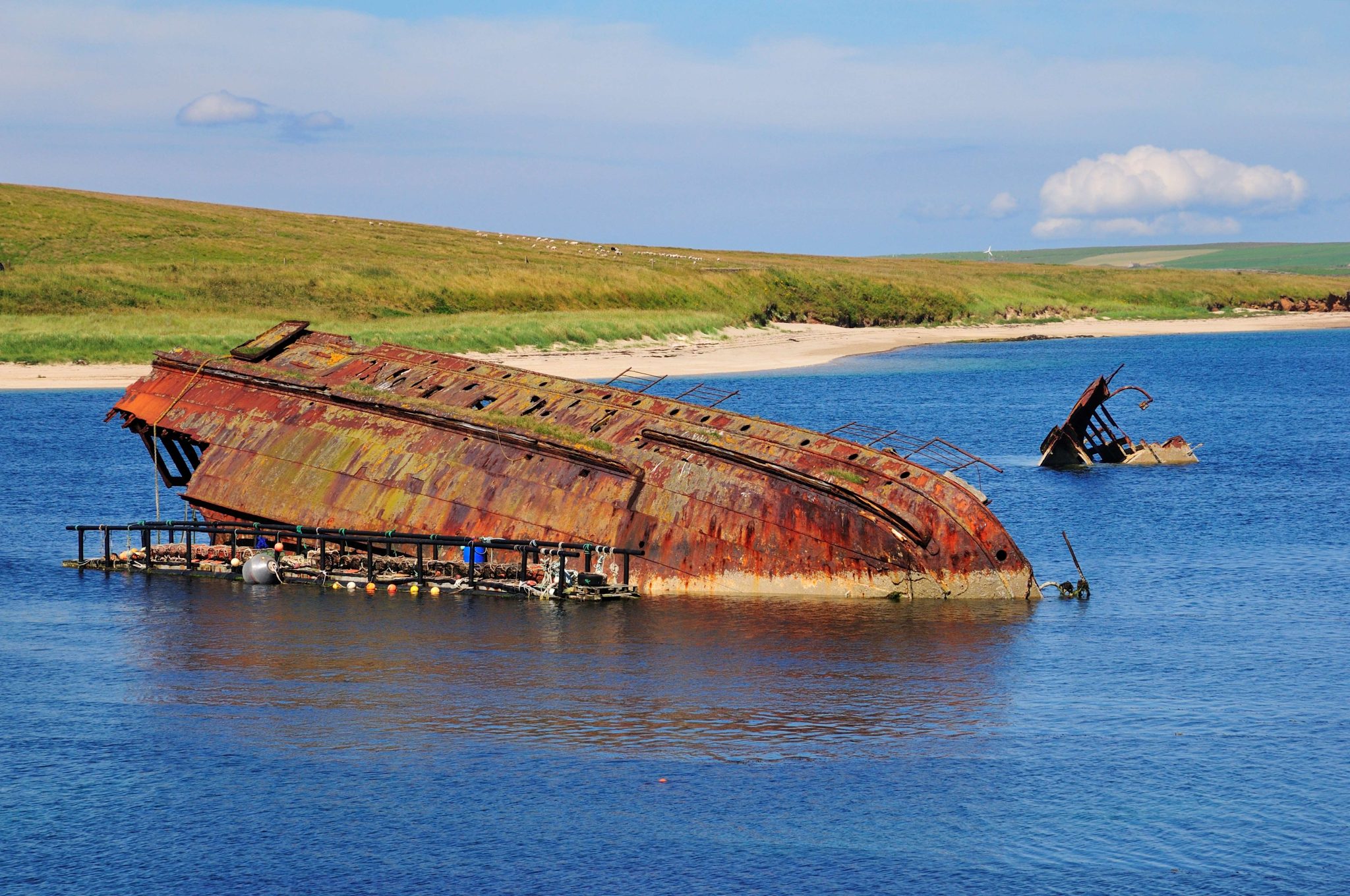
SCAPA FLOW, ORKNEY
For wreck diving this has to be the premier dive location in the UK, where the remains of the German High Seas Fleet lie after being deliberately scuttled by the German Navy in 1919. Along with the blockships like the Tabarka, that lie in shallower water, there are also several WWII vessels to explore. There is a shipwreck for every experience level in the Flow, and one trip may not be enough!
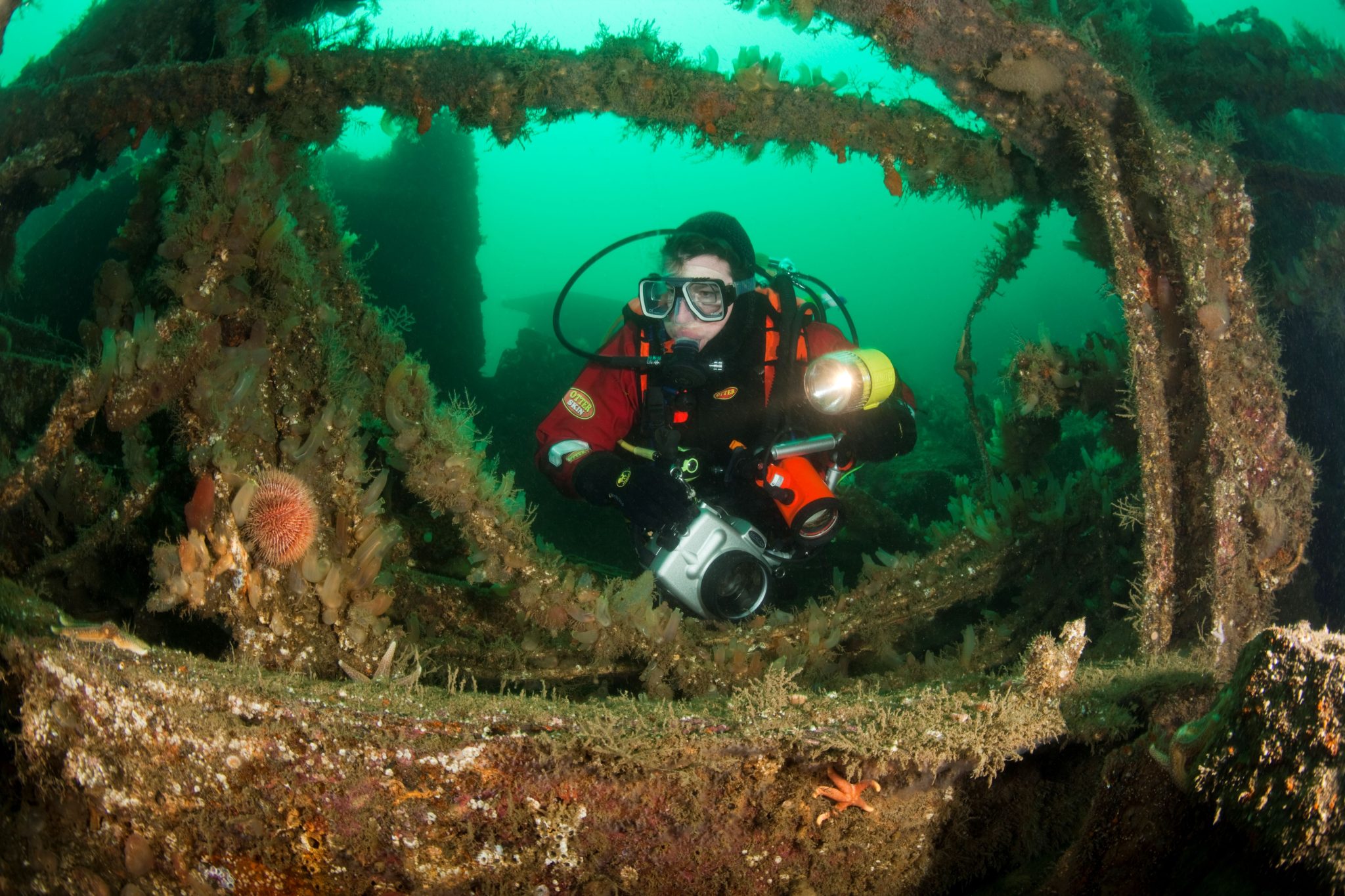
XDEEP @ NAUTILUS
Email: info@nautilus.uk / Web: www.nautilus.uk/brand/xdeep/
XDEEP Facebook / XDEEP NX Series Facebook Group / Nautilus Facebook

For over a decade XDEEP has innovated in the scuba industry sector and evolved into a manufacturer reknowned for cutting edge design and development. Born from the need to explore, the design and implementation of advanced exploration equipment has made its way into the recreational and technical diving arena, much as Formula 1 motorsport. Now each product is recognised as ground breaking in its design and being the most effective in its class. Premium components and the most advanced manufacturing techniques mean reliability is second to none whilst retaining both function and form.
Email: info@nautilus.uk / Web: www.nautilus.uk/brand/xdeep/
XDEEP Facebook / XDEEP NX Series Facebook Group / Nautilus Facebook
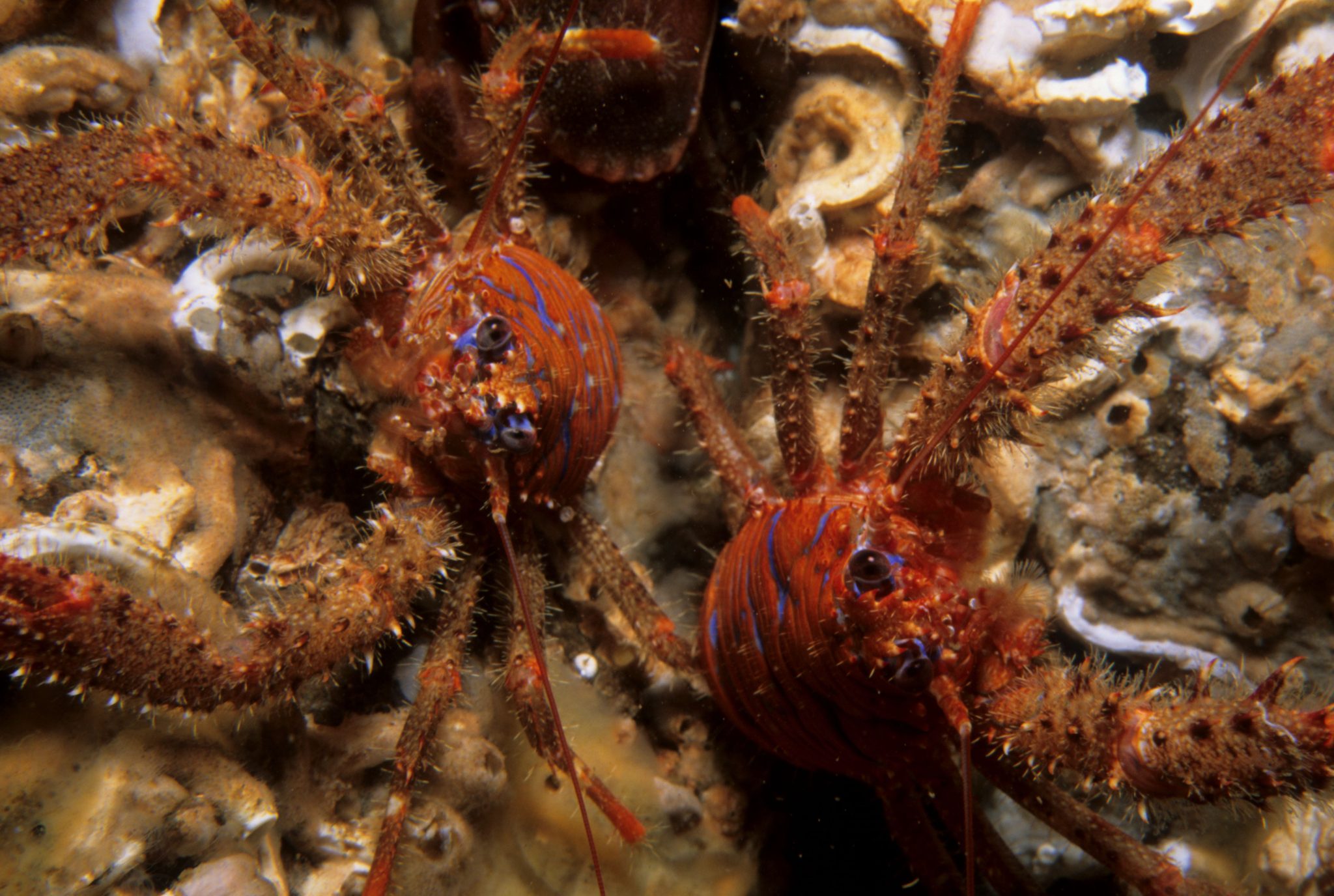
ST ABBS AND EYEMOUTH, SCOTLAND
This protected area of coastline has a wonderful array of marine life. The rocks here are festooned with soft corals, anemones, sea urchins and starfish. A huge diversity of fish including wolf fish and conger eels keep divers coming back trip after trip.
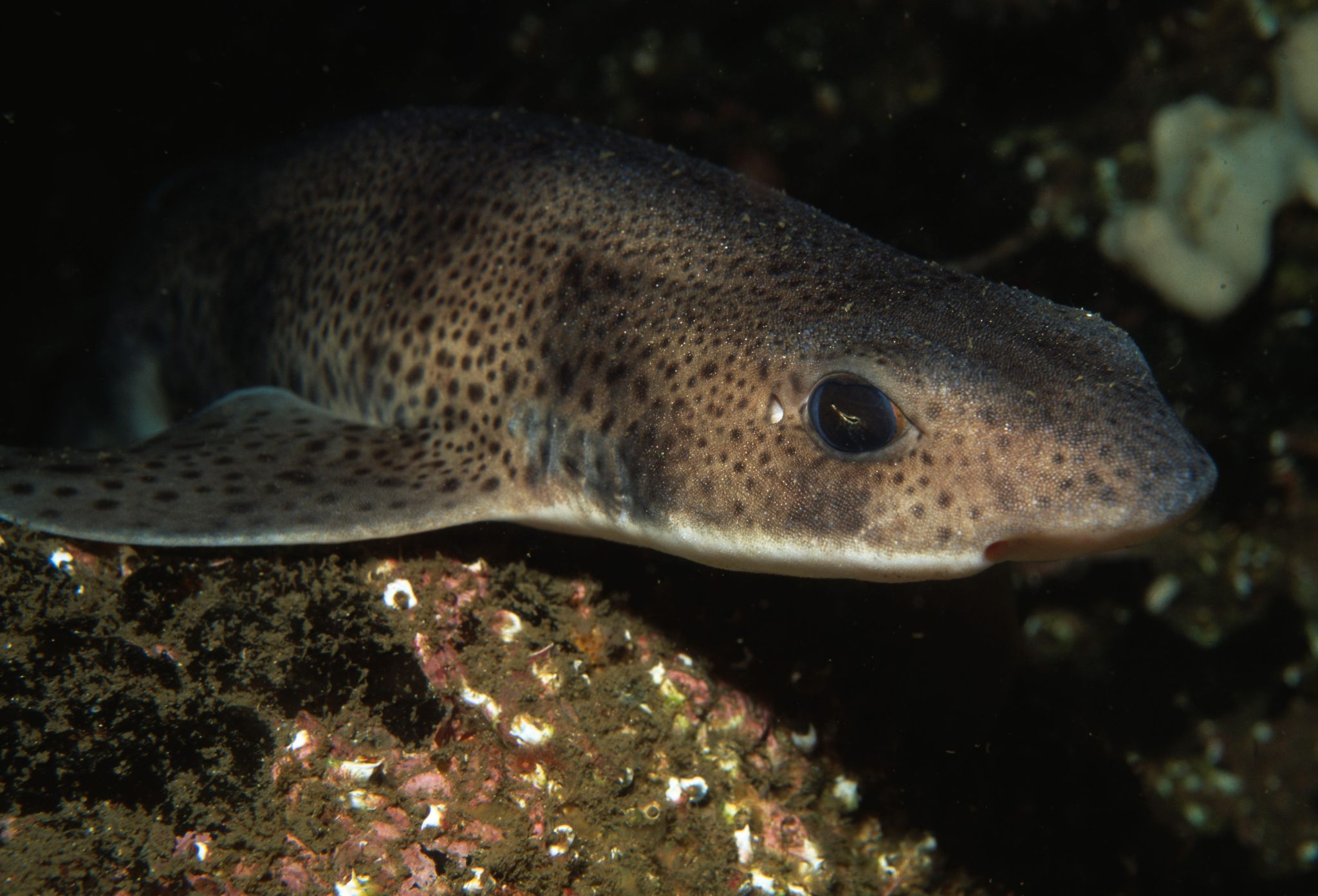
OTTER DRYSUITS
Email: sales@drysuits.co.uk / Web: www.otterwatersports.uk / Telephone: 01274 379480
Facebook / Instagram
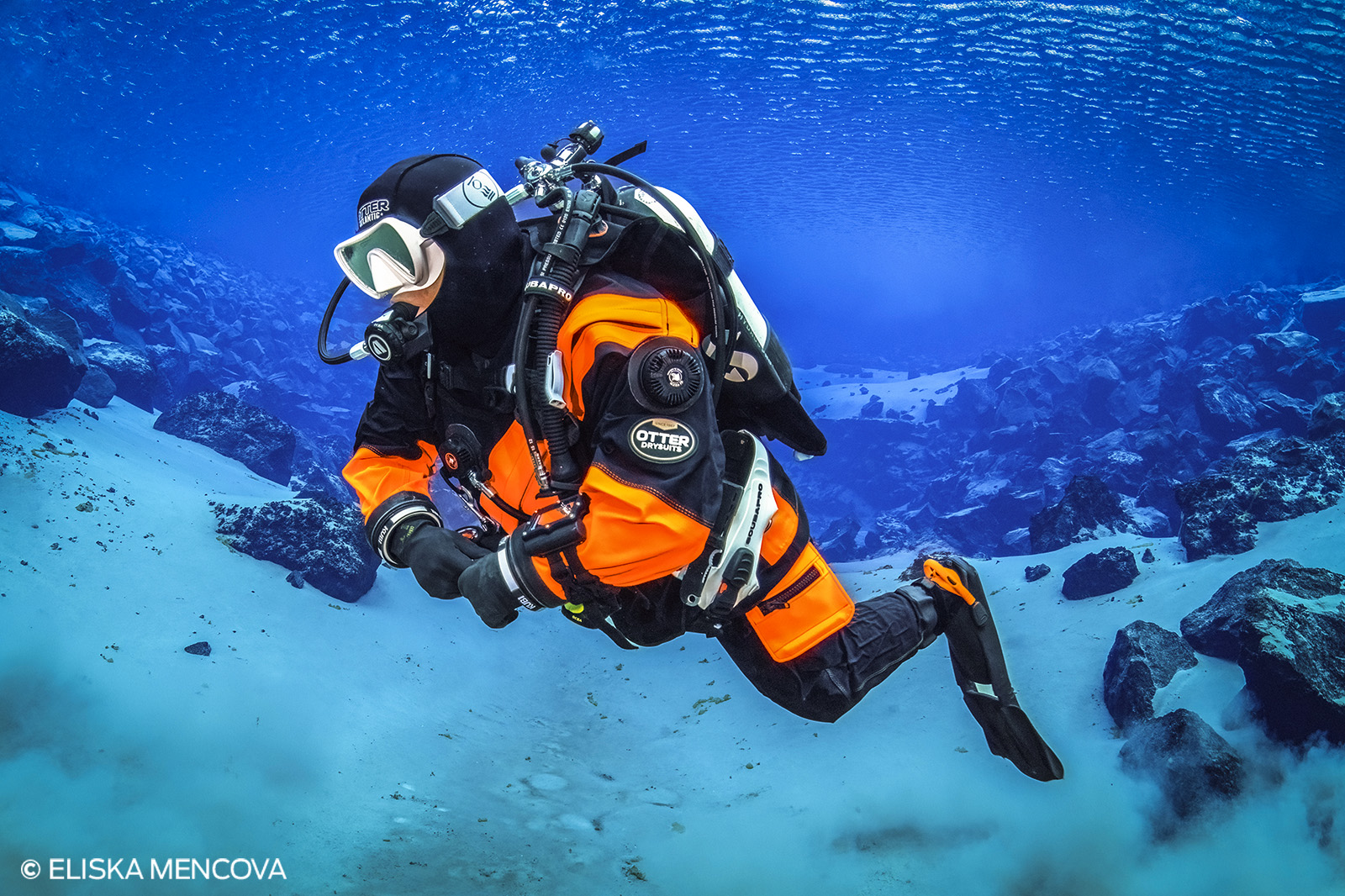
Otter understands what it takes to make a great drysuit. When we say our suits are ‘exploration grade’, we mean it – with over 37 years of experience behind us, Otter suits are the choice of some of the biggest names in dive exploration. From the deepest wrecks to the longest caves, diving explorers choose Otter to protect them from the harshest conditions.
Otter Drysuits was founded in 1986 by John Womack Snr in Bradford, West Yorkshire. A renowned diver in his own right, John was directly involved in major technical diving expeditions sponsored by Otter, including three on the renowned Britannic wreck in Greece, HMS Victoria off Lebanon and the wrecks of HMS Prince of Wales and HMS Repulse in the South China Sea.
From the outset, Otter Drysuits has been known for innovation, and this is as true today as it has ever been. Our popular Brittanic drysuit offers amazing fit and comfort and is one of our toughest suits, with a telescopic section allowing easy movement out of the water. The Atlantic range offers unequalled stretch and movement for the wearer, whilst using hard-wearing materials and even Kevlar to protect in even the most extreme environments. Top-quality components from YKK, Apeks, Si-Tech and KUBI ensure Otter Drysuits can offer the ideal drysuit to suit the needs of even the most demanding of divers.
The result of years of development and unrivalled experience, our award-winning suits are renowned for their quality, fit and durability. Available either made-to-measure or in a full set of standard sizes, we offer a range of materials including membrane (trilaminate), neoprene and now the incredibly tough Kevlar.
We offer every possible option on our drysuits – from multiple valve positions to pee valves and field-changeable neck and wrist seals. With each suit made entirely by one single craftsperson, we work closely with our customers to provide a customised suit at an outstanding price. As our many customers across the globe will attest, our reputation for quality, value and customer service is second to none.
Our trilaminate drysuits are renowned across the world for their quality of build and incredible durability. It’s not by accident that you see so many Otter drysuits worn by professionals on television and in the media. They’re built to perform; dive after dive, year after year. Wherever your diving takes you, choose Otter.
Email: sales@drysuits.co.uk / Web: www.otterwatersports.uk / Telephone: 01274 379480
Facebook / Instagram
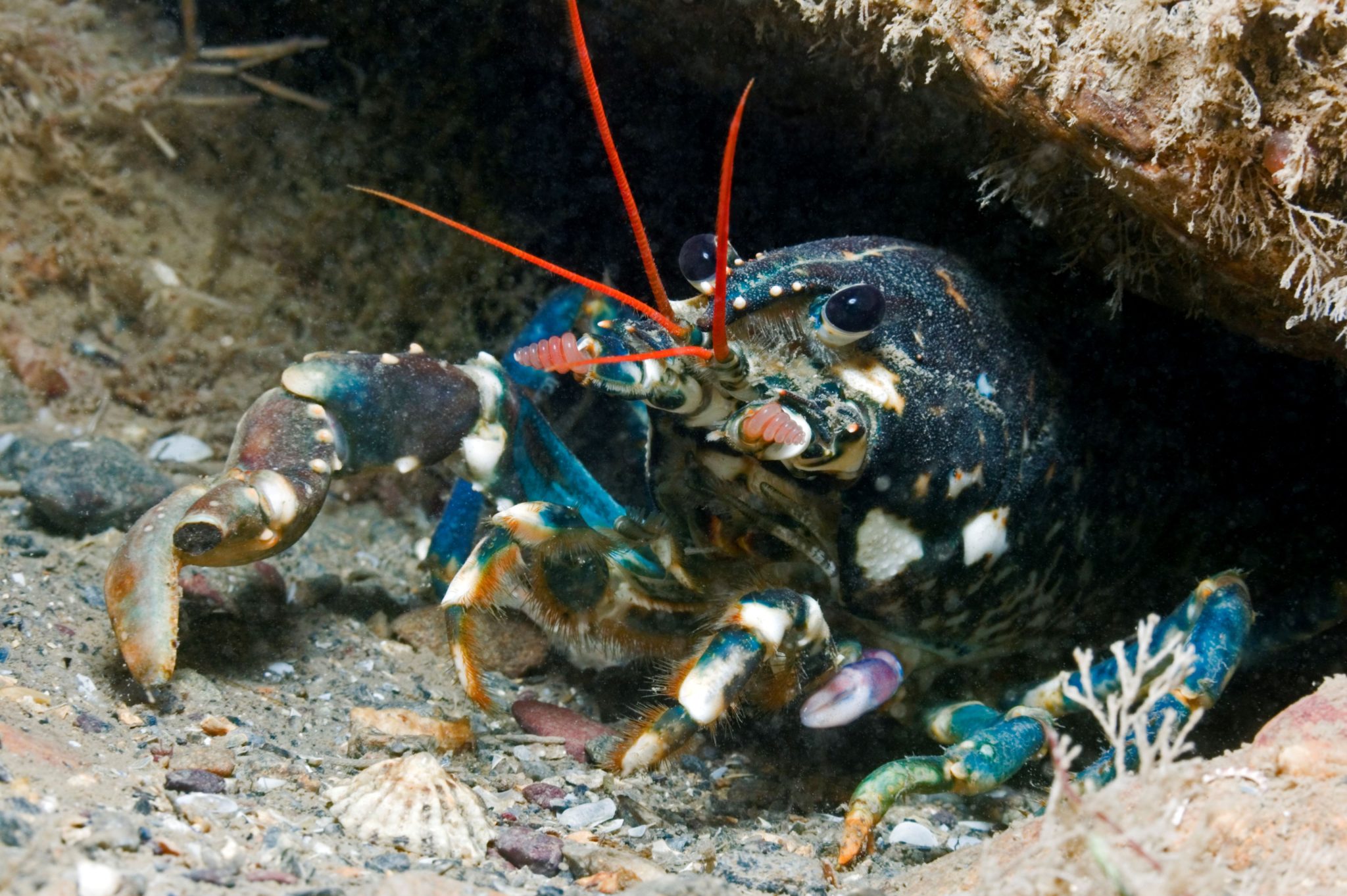
ANGLESEY, WALES
Anglesey, across the Menai Strait, has a great number of shore dives at shallow depths, easily accessible and with fantastic marine life. A whole holiday can be spent doing relaxed gully and reef dives accessible from the local beaches. With several hundred wrecks along the coast, including the SS Missouri and a B-17 Bomber, there are boat diving options too and diving for all experience levels.
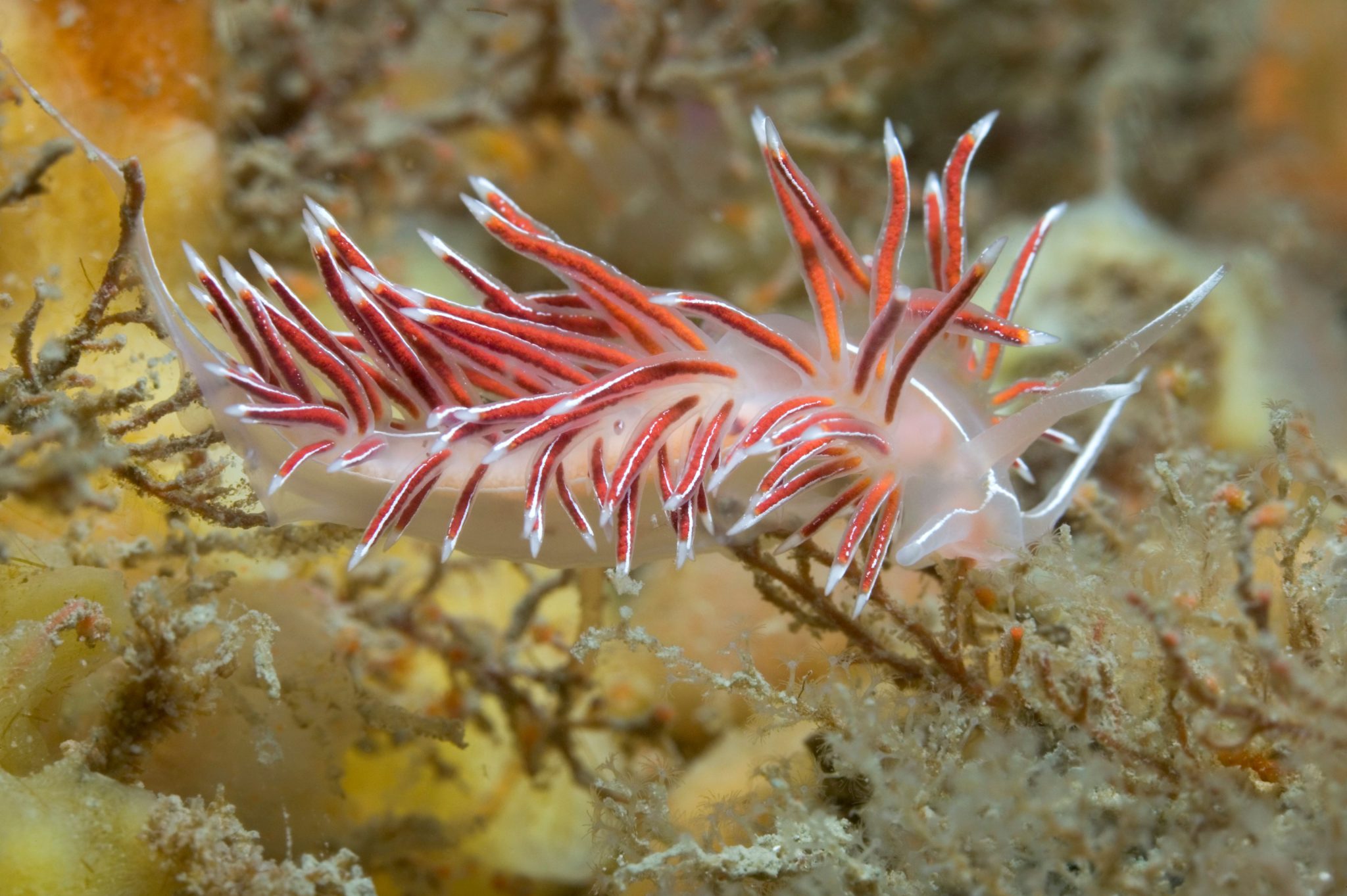
AP DIVING
Email: info@apdiving.com / Web: www.apdiving.com / Telephone: 01326 561040
Facebook / Instagram
![]()
AP Diving began life over 55 years ago as a small family business. Today we are an award-winning internationally respected dive manufacturer with a legacy of pioneering and landmark products – from the AP Valve, the TEKWING and the COMMANDO BCD range to the constantly evolving and world-beating INSPIRATION closed circuit rebreather. Our mission has always been to help divers dive better, explore further, stay longer, and enjoy the adventure. Take your diving to the next level with AP.
Email: info@apdiving.com / Web: www.apdiving.com / Telephone: 01326 561040
Facebook / Instagram
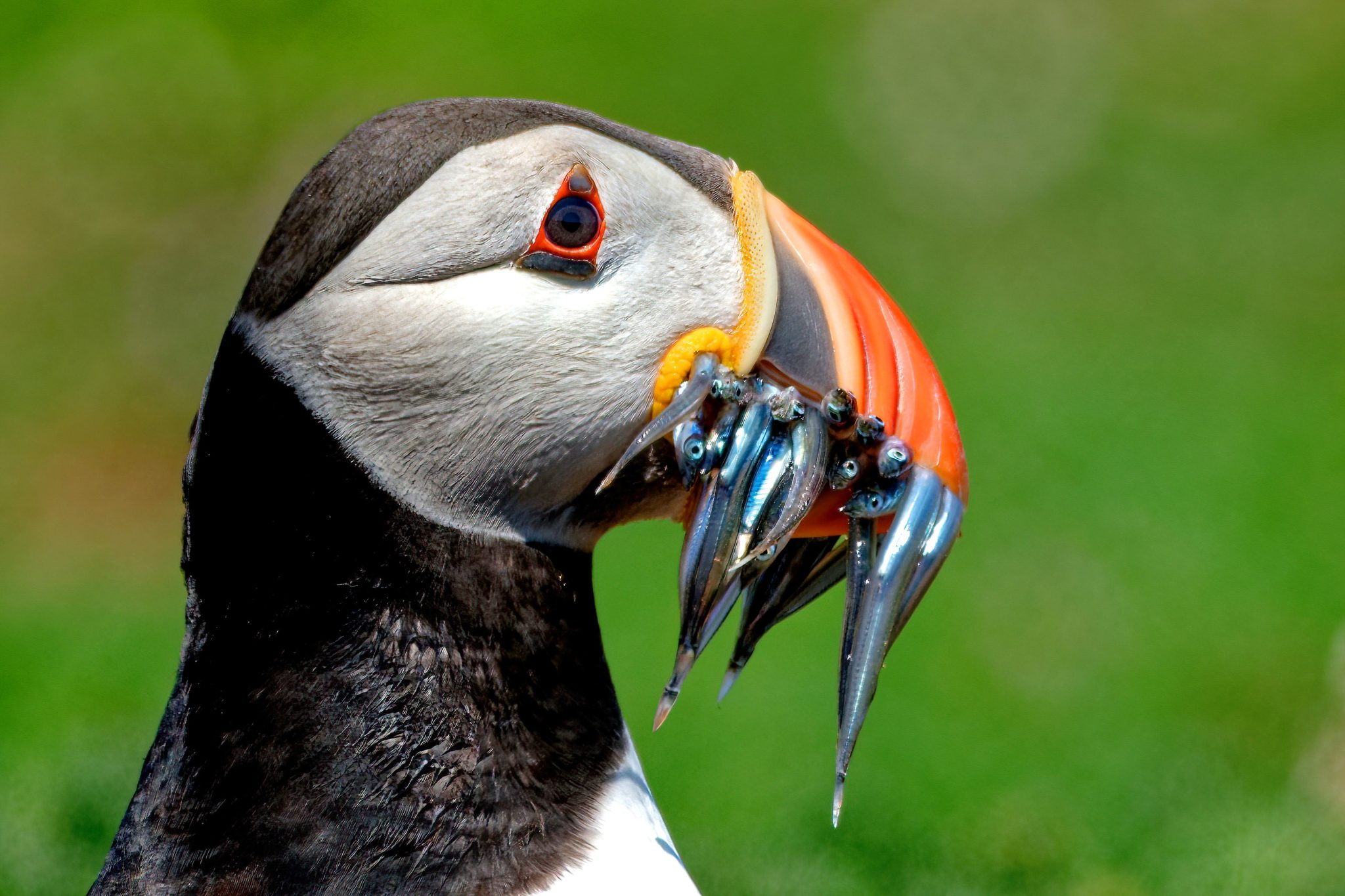
PEMBROKESHIRE, WALES
Home to the Skomer Marine Reserve, this spectacular reef is teeming with life, from dolphins to nudibranchs, seals to seahorses. Walls drop off to deep water, caves lure explorers and hundreds of wrecks mean there is something for everyone.
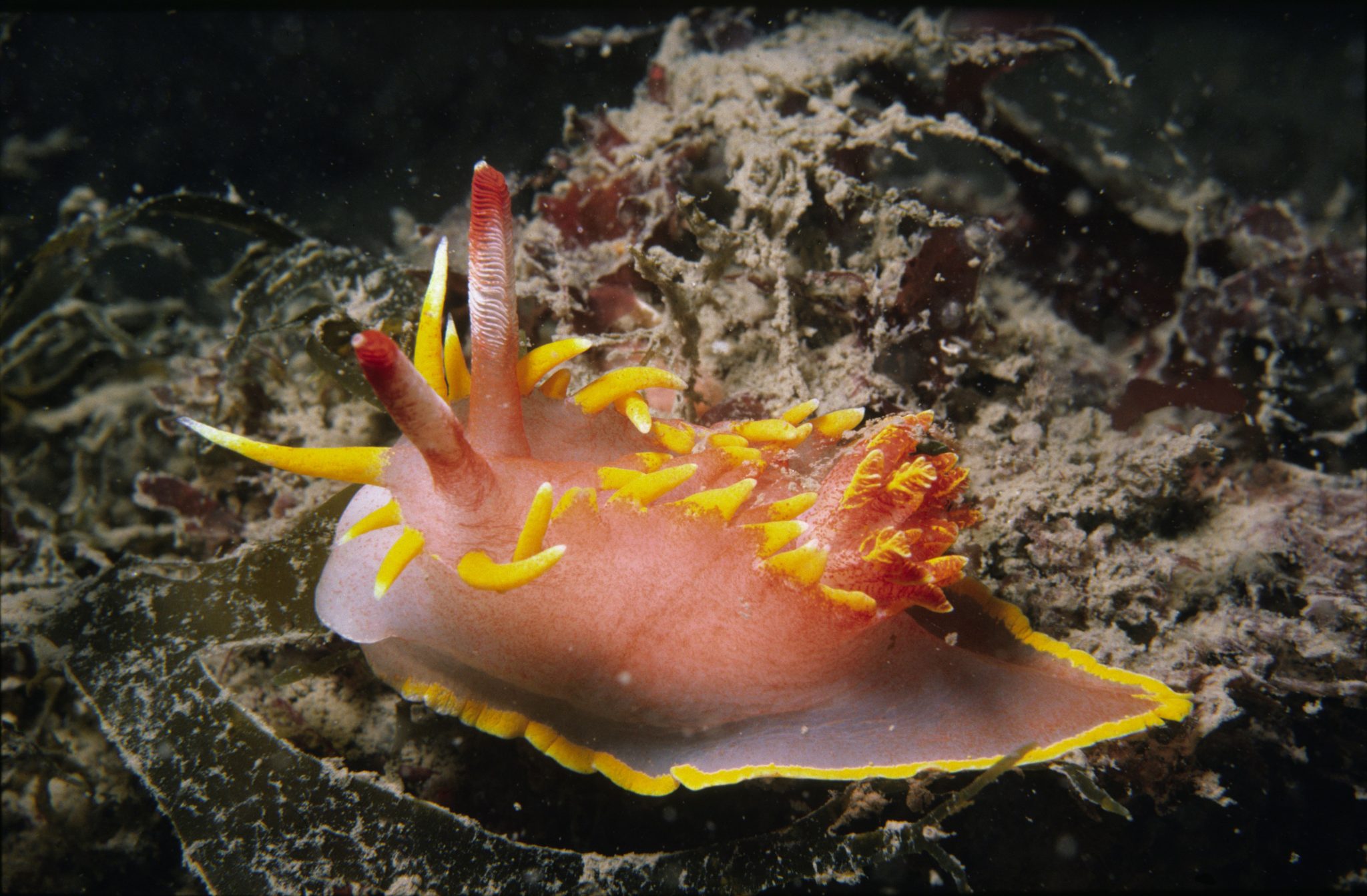
URSUIT @ LIQUID SPORTS
Email: info@liquidsports.co.uk / Web: liquidsports.co.uk
Ursuit Facebook / Liquid Sports Facebook
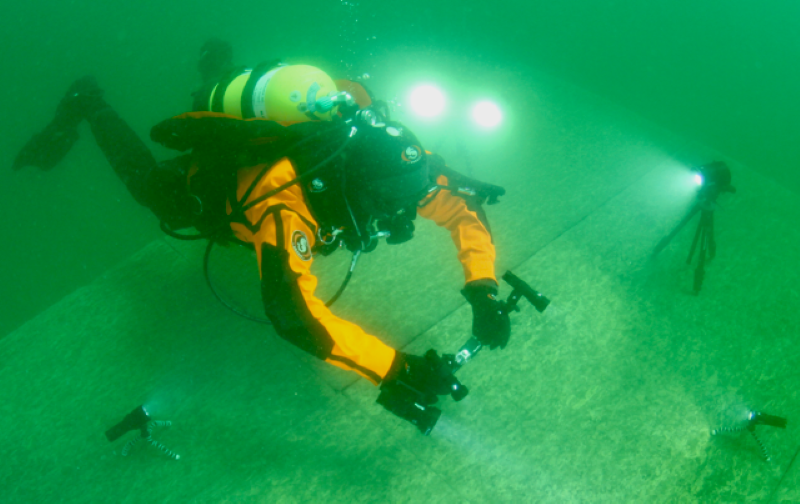
Ursuit Oy is a Finnish company established in 1964. The factory is located in Turku, Finland.
We manufacture Ursuit® drysuits for all kinds of water activities, both under and above the surface. Main product groups are diving, rescue and recreational drysuits. The Ursuit drysuit range consists of over 15 standard surface drysuit models and over 10 standard diving drysuit models in many colours for both men and women.
All of the Ursuit drysuits are handmade and therefore they can easily be modified according to customer needs and wishes. A standard model can easily be customized with different kinds of pockets, MOLLE-system, relief zippers etc.
The drysuits can directly be produced according to the user´s measurements, even in big quantities. We have produced made-to-measure drysuits with individual customizations for fire departments, coast guards, police and military forces, maritime crews and several other professional instances.
Our production is carefully controlled and audited annually by a Notified Body according to ISO 9001, ISO 14001, SOLAS/MED and EASA/ETSO requirements. These quality assurances make it possible that the user can concentrate on the most essential, the activity.
Email: info@liquidsports.co.uk / Web: www.liquidsports.co.uk
Ursuit Facebook / Liquid Sports Facebook
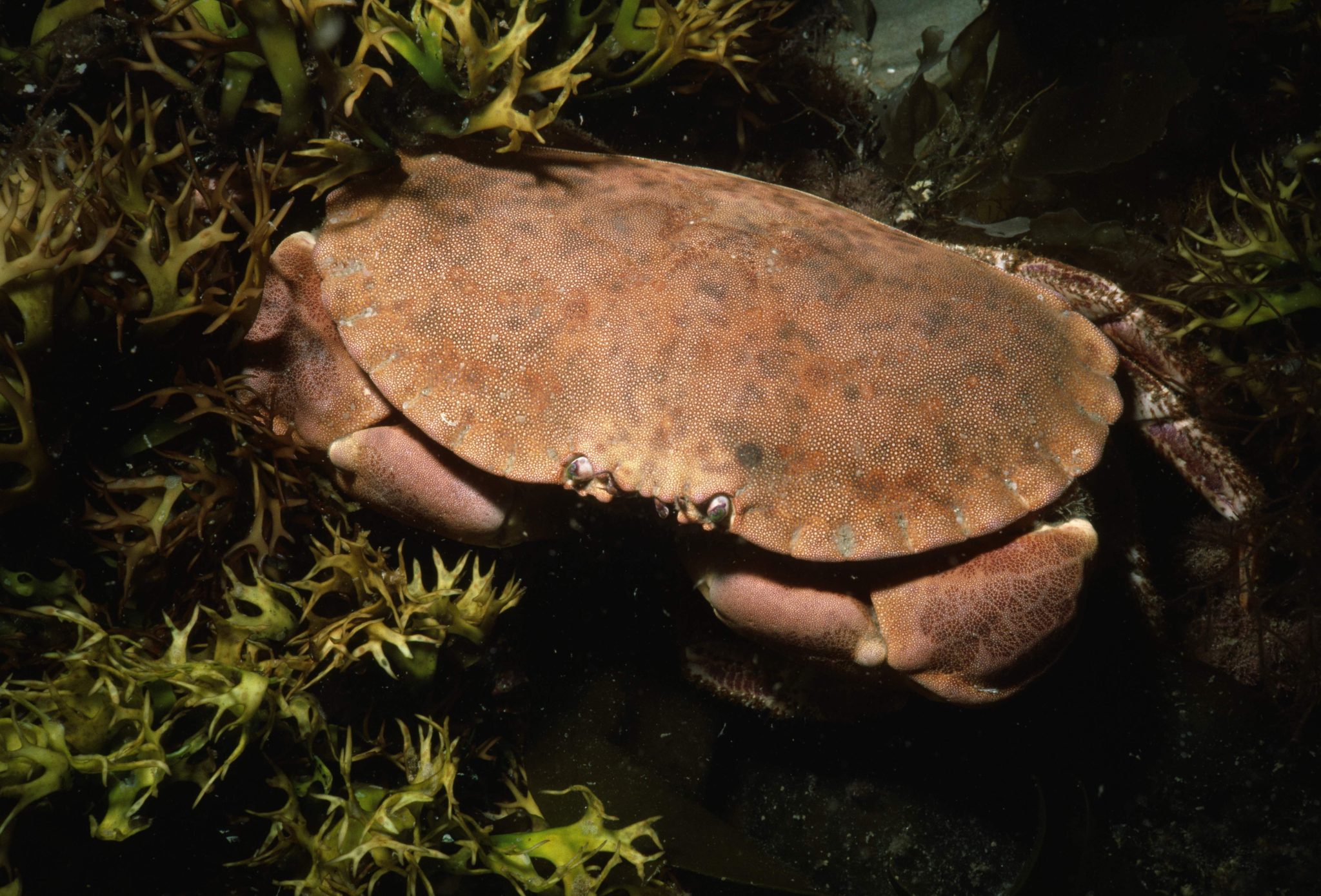
LUNDY, DEVON
Lundy Island, in the mouth of the Bristol Channel about 12 miles off the coast of North Devon, is a Marine Conservation Zone with fabulously rich marine life, impressive visibility and numerous wrecks to explore. The local seal population can be very playful and the biodiversity some of the best in the UK waters. Tidal currents can be strong, so this is best dived by experienced divers.
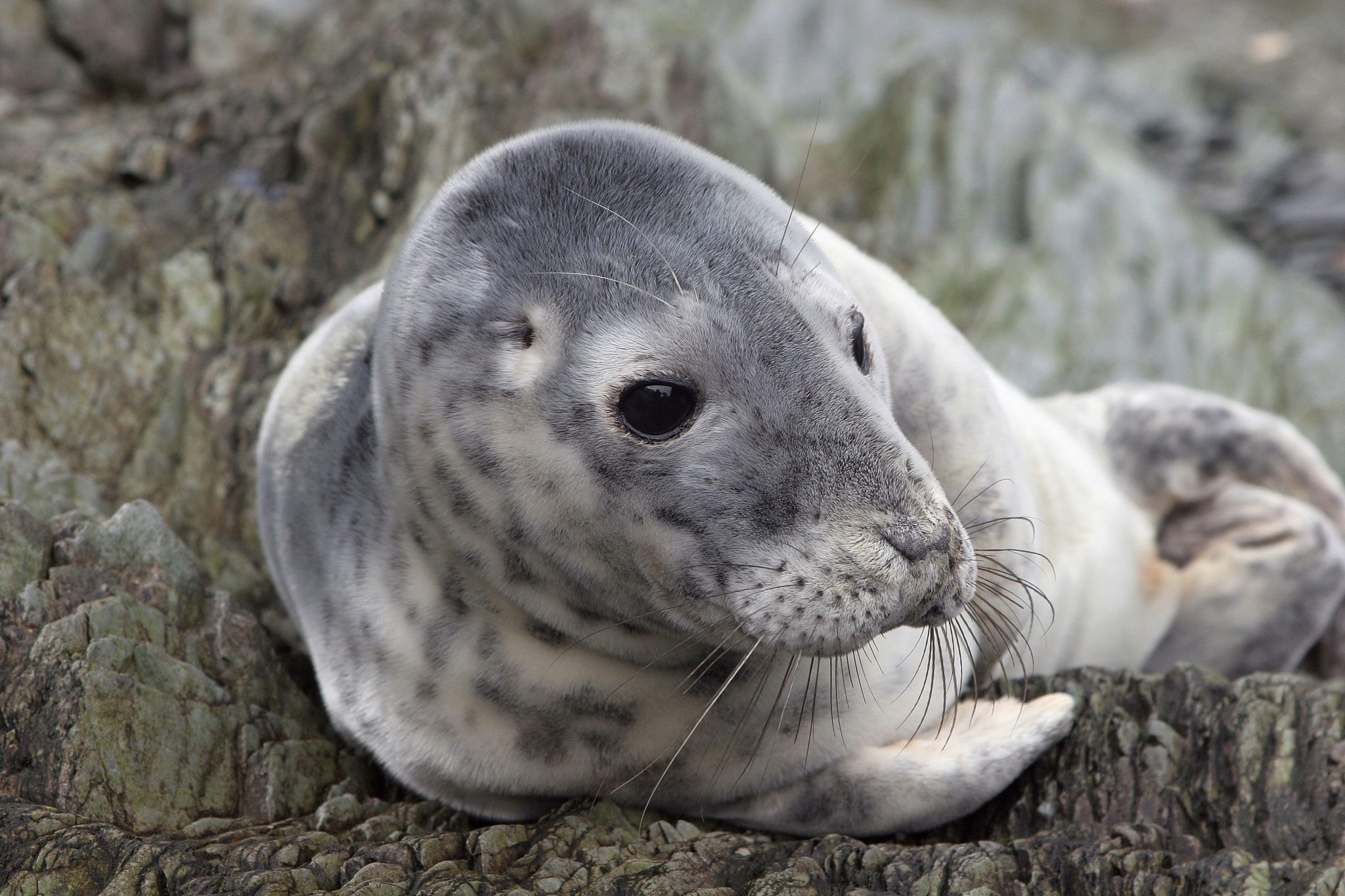
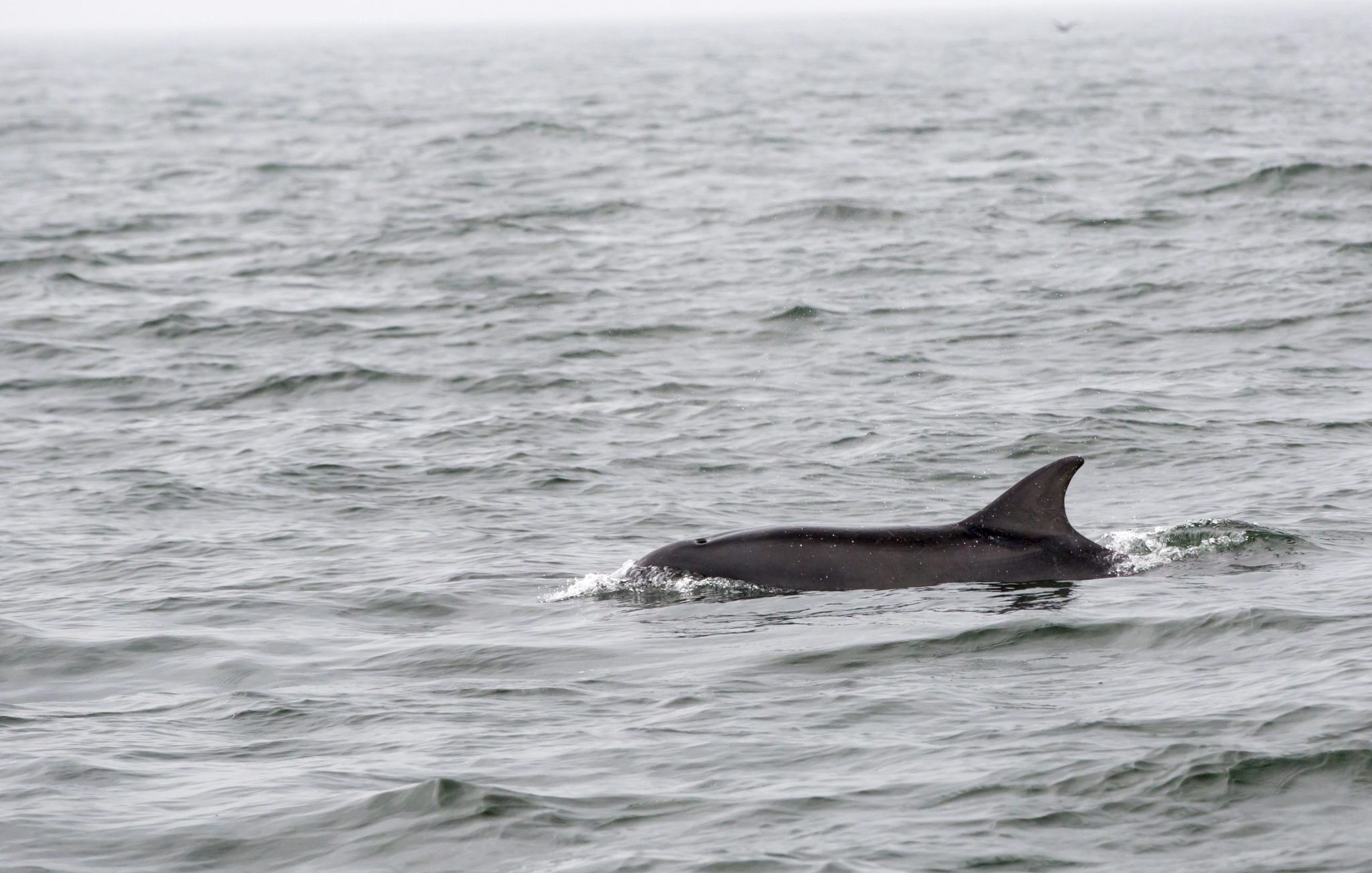
FARNE ISLANDS
Famous for its brilliant seal encounters, the Farne Islands have a large and playful population of grey seals. Diveable year round when the weather is calm, there are sites for all levels. Rock faces covered with crevices and gullies to explore shelter a host of marine life, such as lobsters, crab, nudibranchs and anemones. There are also several good wreck dives in the area. The islands are also home to the beloved puffin, which can be seen in the nesting season.
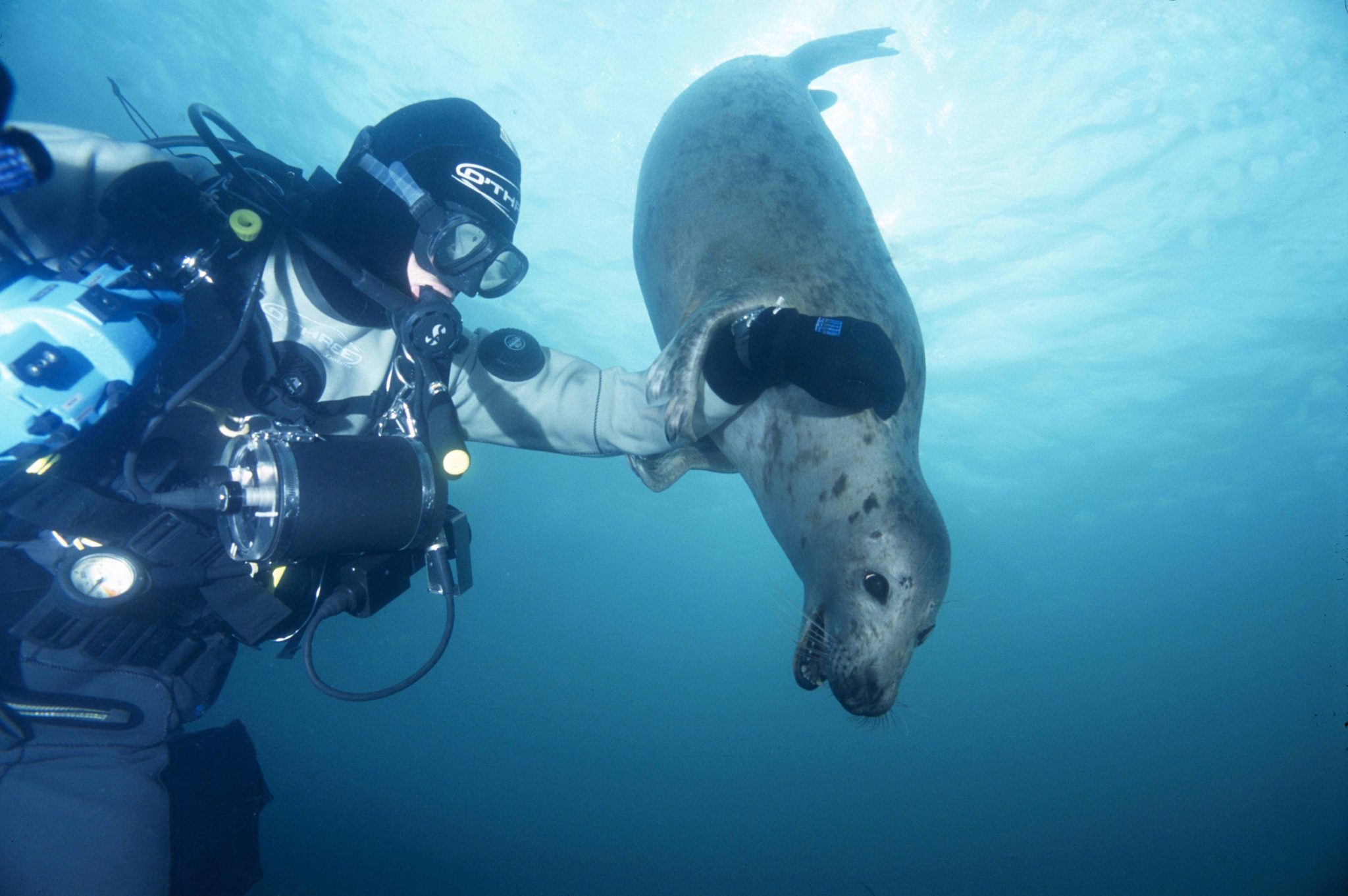
BIGBLUE DIVE LIGHTS @ LIQUID SPORTS
Email: info@liquidsports.co.uk / Web: liquidsports.co.uk
Bigblue Facebook / Liquid Sports Facebook
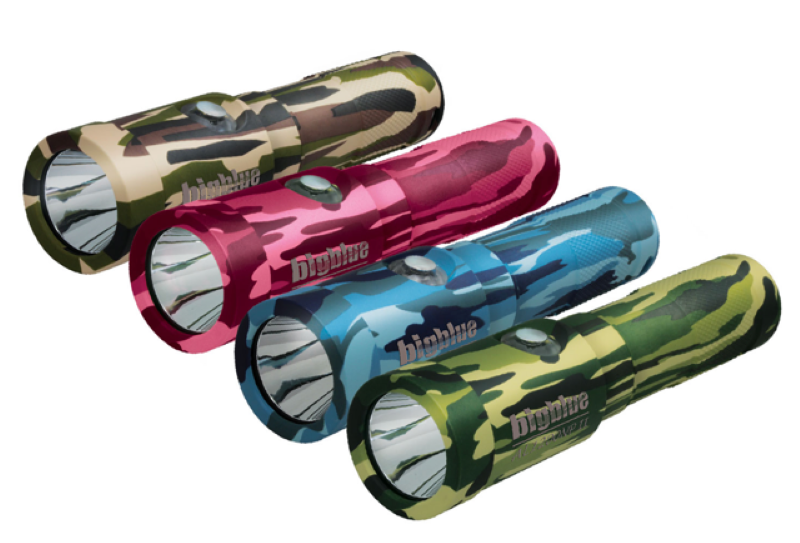
Big Blue is dive light manufacturer providing new innovations in all market segments : Recreational, Videography, Photography, Technical, Commercial, Back-Up and Rescue. Big Blue is the fastest growing dive light manufacturer in the industry building our brand through quality, creative and great customer service. With advanced designs and unprecedented affordability, Big Blue offers the most affordable and technologically advanced LED lights on the market. We incorporate the latest technologies producing the most efficient portable illumination. In addition to brilliant design features, we offer the most ideal lights for underwater illumination, night diving and video lighting.Whether you are looking for a simple recreational dive light or a full-blown technical underwater illumination system. With a lumen offering from 250 to 65000 Big Blue has a light for you!
Email: info@liquidsports.co.uk / Web: www.liquidsports.co.uk
Bigblue Facebook / Liquid Sports Facebook
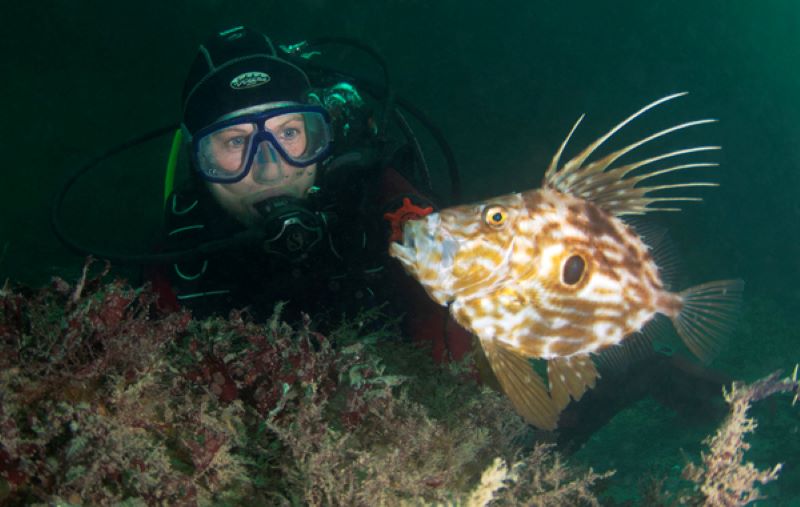
PORTHKERRIS, CORNWALL
Porthkerris lies on the Lizard peninsula of Cornwall. It is a famously treacherous area of submerged rocks like the Manacles which has resulted in hundreds of shipwrecks, now a haven for sea life. Dive sites in the area are suited to a range of experience levels, from an easy yet beautiful shore dive at Porthkerris beach to boat diving offshore pinnacles like Vase rock, now covered in swathes of jewel anemones. Basking sharks are also seen in the area in late spring to early summer feeding on plankton blooms.
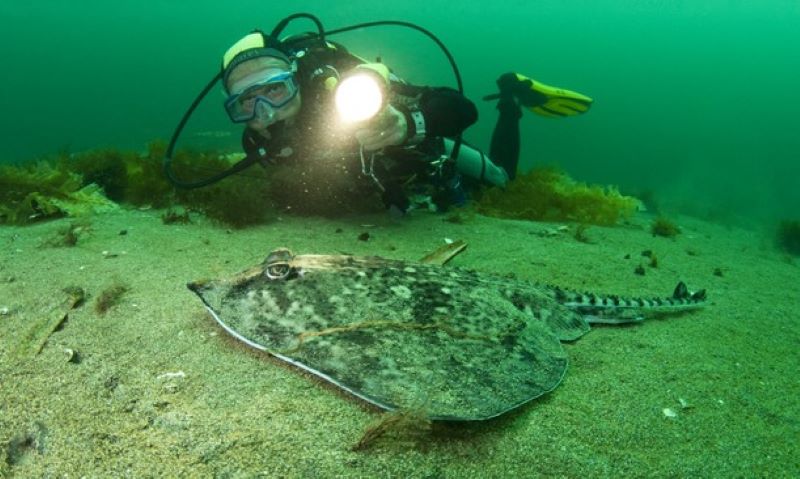
KUBI DRY GLOVES
Email: Sales@kubistore.com / Web: www.kubistore.com / Tel: 01162 388 255
Facebook / Instagram / LinkedIn

KUBI Dry Gloves represent innovation and quality in diving equipment. Designed to keep divers’ hands warm and dry in cold water environments, KUBI gloves offer a reliable seal that prevents water from seeping in, ensuring comfort and dexterity during dives.
Crafted from durable materials and engineered with precision, these gloves prioritize both functionality and durability, making them a trusted choice among professional and recreational divers alike. Beyond gloves, the KUBI brand extends its expertise to essential accessories like transport bags and dry bags. Crafted with the same dedication to quality and functionality, these accessories offer divers reliable solutions for storing and transporting their gear.
The KUBI brand is synonymous with excellence in diving gear. With a commitment to meeting the needs of divers worldwide, KUBI continuously pushes the boundaries of design and performance. KUBI’s dedication to innovation and customer satisfaction has earned us a reputation as a leader in the diving industry. Whether exploring vibrant coral reefs, descending into the depths of wrecks or going deep into a cave/mine divers can trust KUBI Dry Gloves to provide the protection they need to enjoy their underwater adventures to the fullest.
Email: Sales@kubistore.com / Web: www.kubistore.com / Tel: 01162 388 255
Facebook / Instagram / LinkedIn
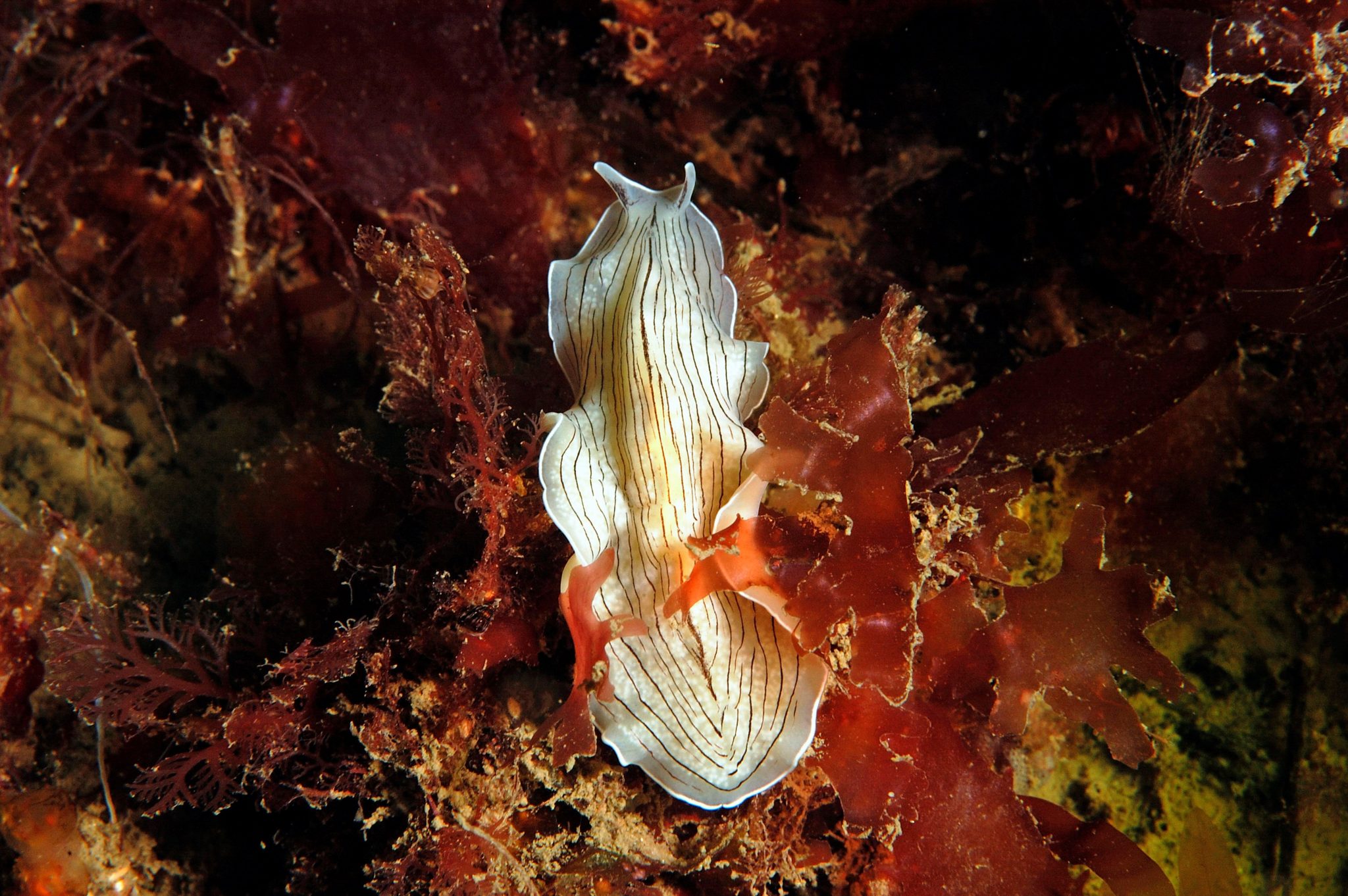
DORSET
Dorset has several excellent wreck dives, from submarines, to warships, and sailboats to tanks. The M2 submarine off Portland is a stunning wreck with a tragic story. If wrecks are not your thing, or you’d like a shallow dive to finish off the day, Swanage Pier is an easy and excellent shallow shore dive. The Victorian era pilings are covered in life and the structure provides a nursery for pollock, bib and ballan wrasse. The shallow depth means the light is superb for underwater photography and there are usually plenty of willing subjects like the ever popular tompot blenny and cuttlefish.
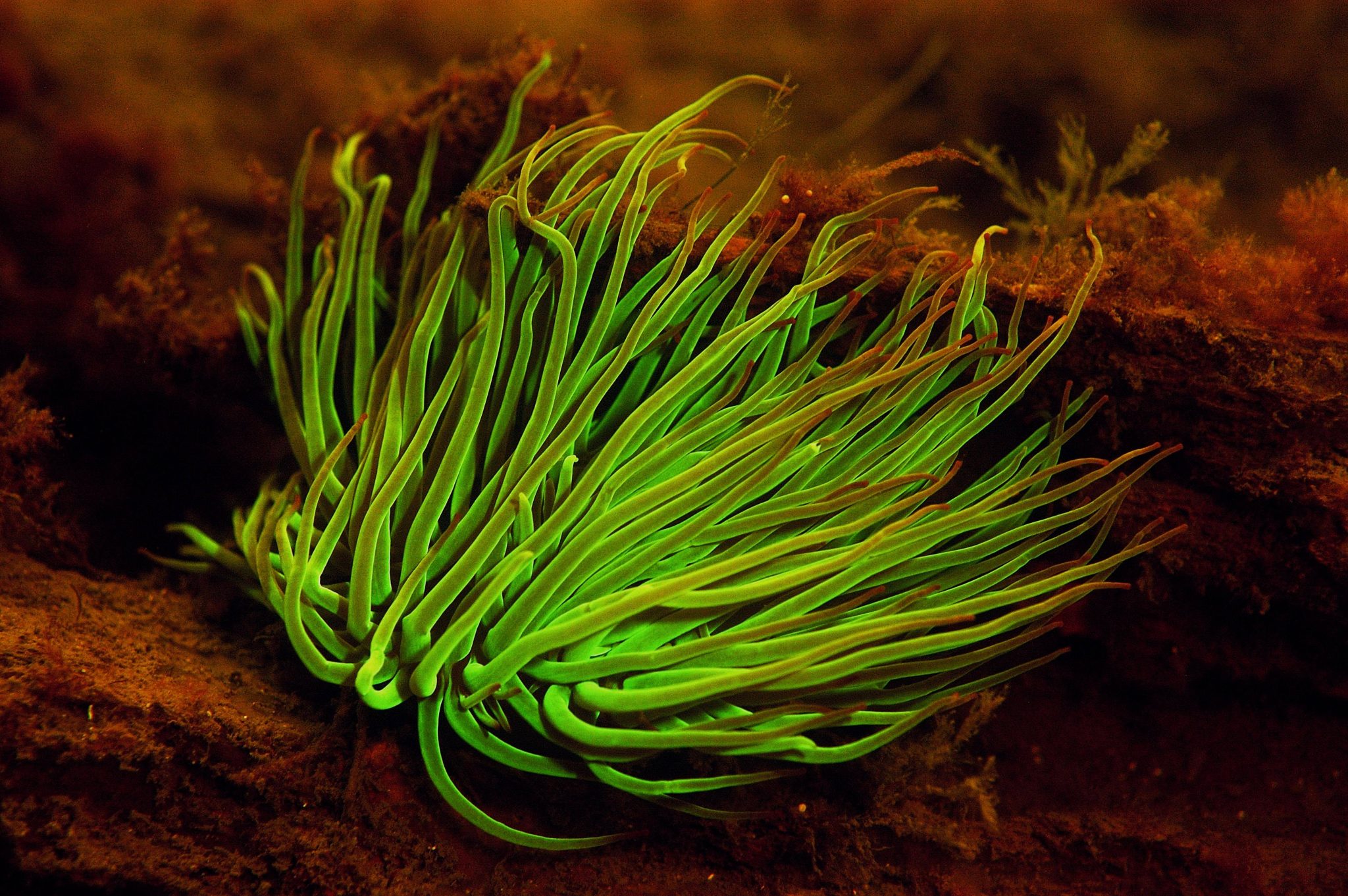
MAXSHOW LTD
Email: enquiries@maxshow.co.uk / Web: www.maxshow.ltd.uk / Tel: 01162 388 255
Facebook / Instagram / LinkedIn

Maxshow LTD is a premier distributor known for its diverse portfolio of up to 10 esteemed brands catering to the diving industry and more. Among its offerings are Miflex hoses, renowned for their durability and flexibility, providing divers with reliable hoses for their underwater adventures.
KUBI, another staple brand, delivers innovative Dry Gloves and Thermal Gear, ensuring comfort and protection in cold water environments. OmniSwivel offers advanced swivel systems, enhancing divers’ mobility and safety during dives.
Maxshow LTD also represents other brands such as Best Divers, Varma, Oceanarium, Sticktite, and Bags of Paper, each offering unique solutions for divers’ needs. Best Divers provides a wide range of accessories, while Varma offers quality wool apparel. Oceanarium specializes in creative products, Sticktite offers adhesive solutions for sight and Bags of Paper provides environmentally friendly packaging. AquaSketch rounds out the lineup with innovative underwater writing slates.
With Maxshow LTD’s commitment to quality and diversity, divers can trust in the reliability and performance of these brands for their diving endeavors.
Email: enquiries@maxshow.co.uk / Web: www.maxshow.ltd.uk / Tel: 01162 388 255
Facebook / Instagram / LinkedIn
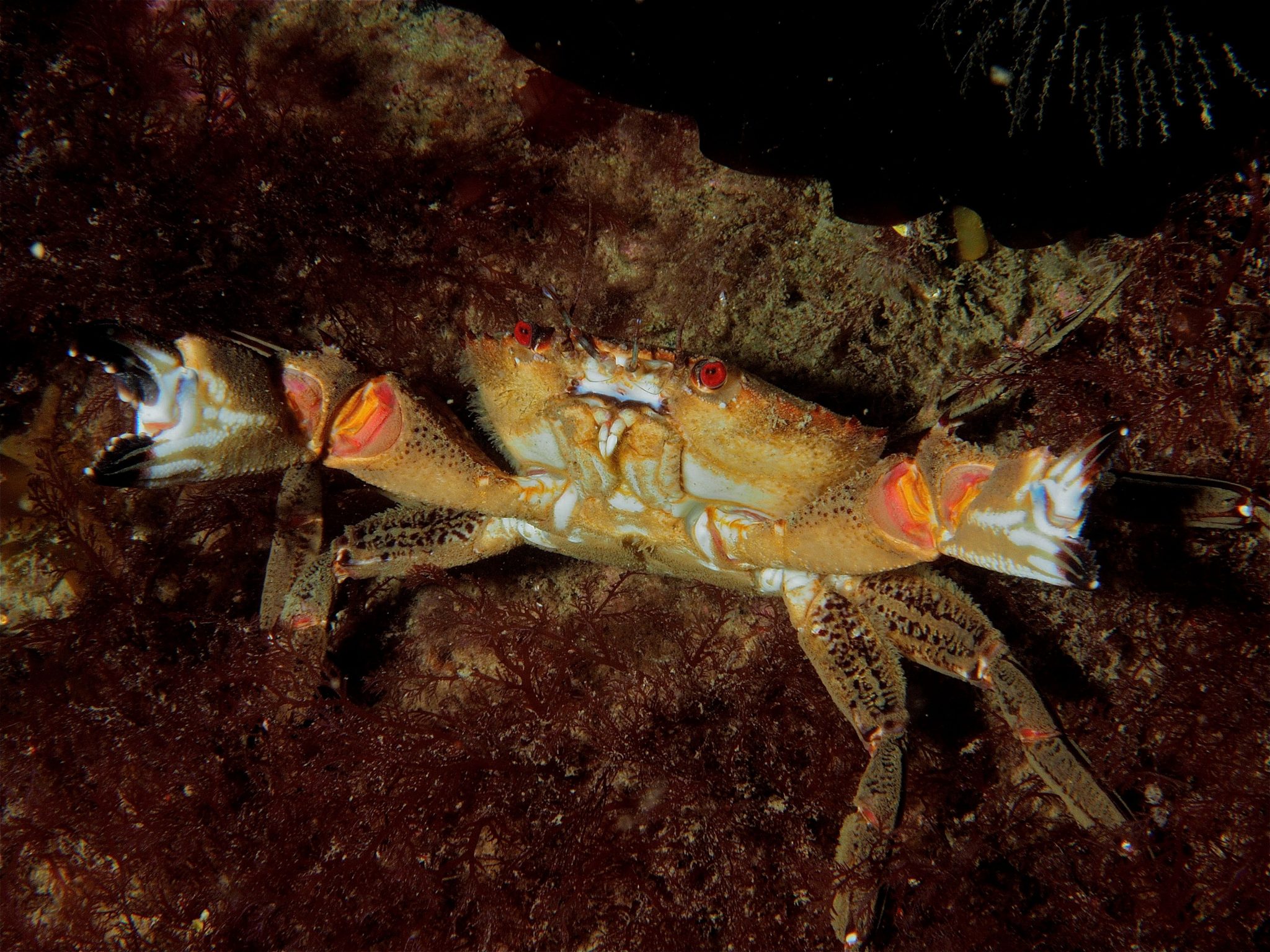
RATHLIN ISLAND, NORTHERN ISLAND
Rathlin to the north of Ballycastle has some fantastic diving. The strong tidal currents in this area mean the marine life is numerous, varied, vibrant and healthy. The northwest cliffs drop to depths of 200m just offshore making an impressive wall dive. Tides hitting the cliffs can create powerful up and down currents, so experience and staying close to the rock is important, but well worth the effort. On the east coast the wreck of the S.S Lochgary, a converted government transport ship, which was involved in the WWII Dunkirk evacuation, before sinking in her current location in 1942.
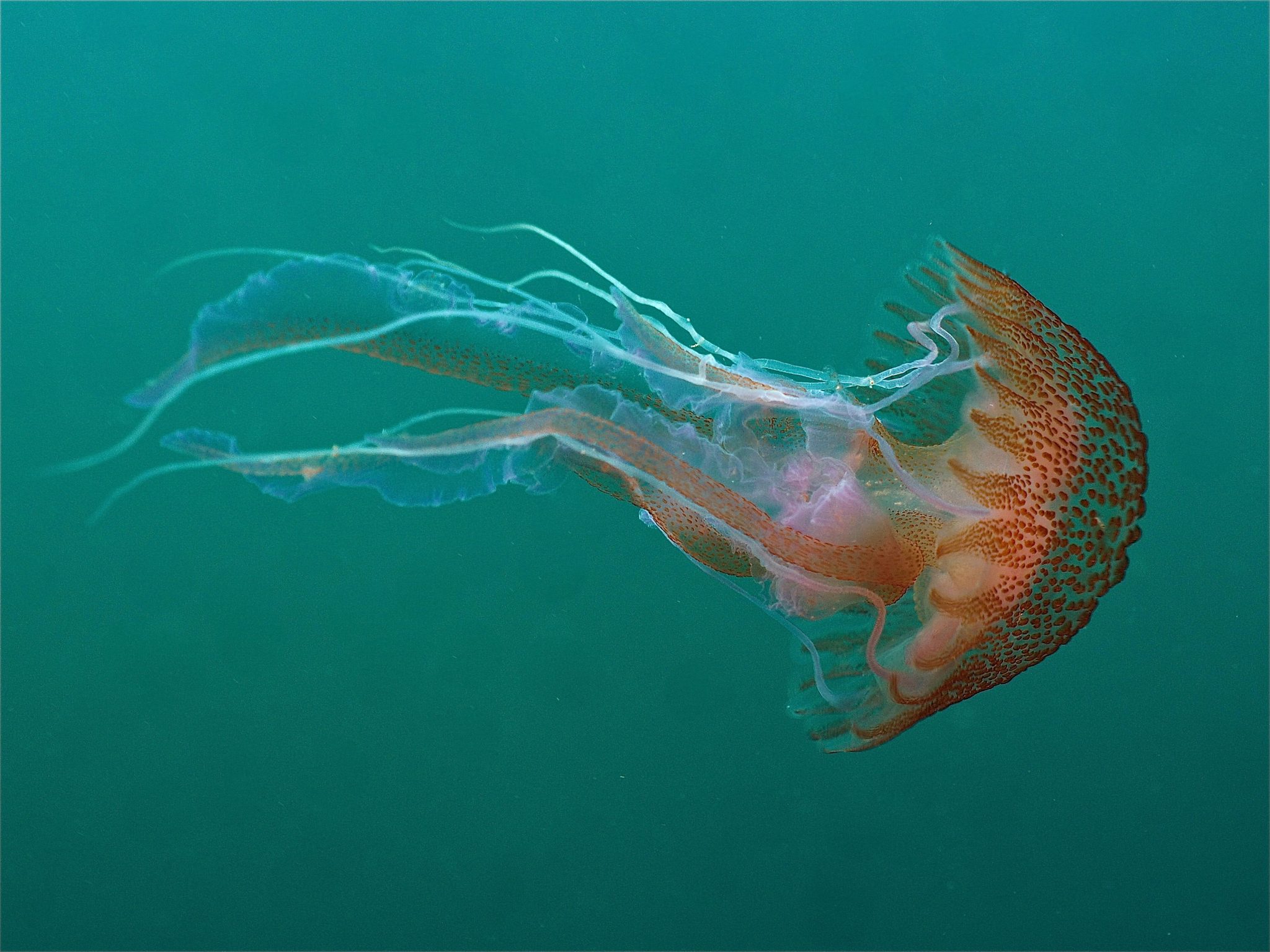
Happy diving!!!
Blogs
Gear Review: Mares Puck4 Dive Computer (Watch Video)
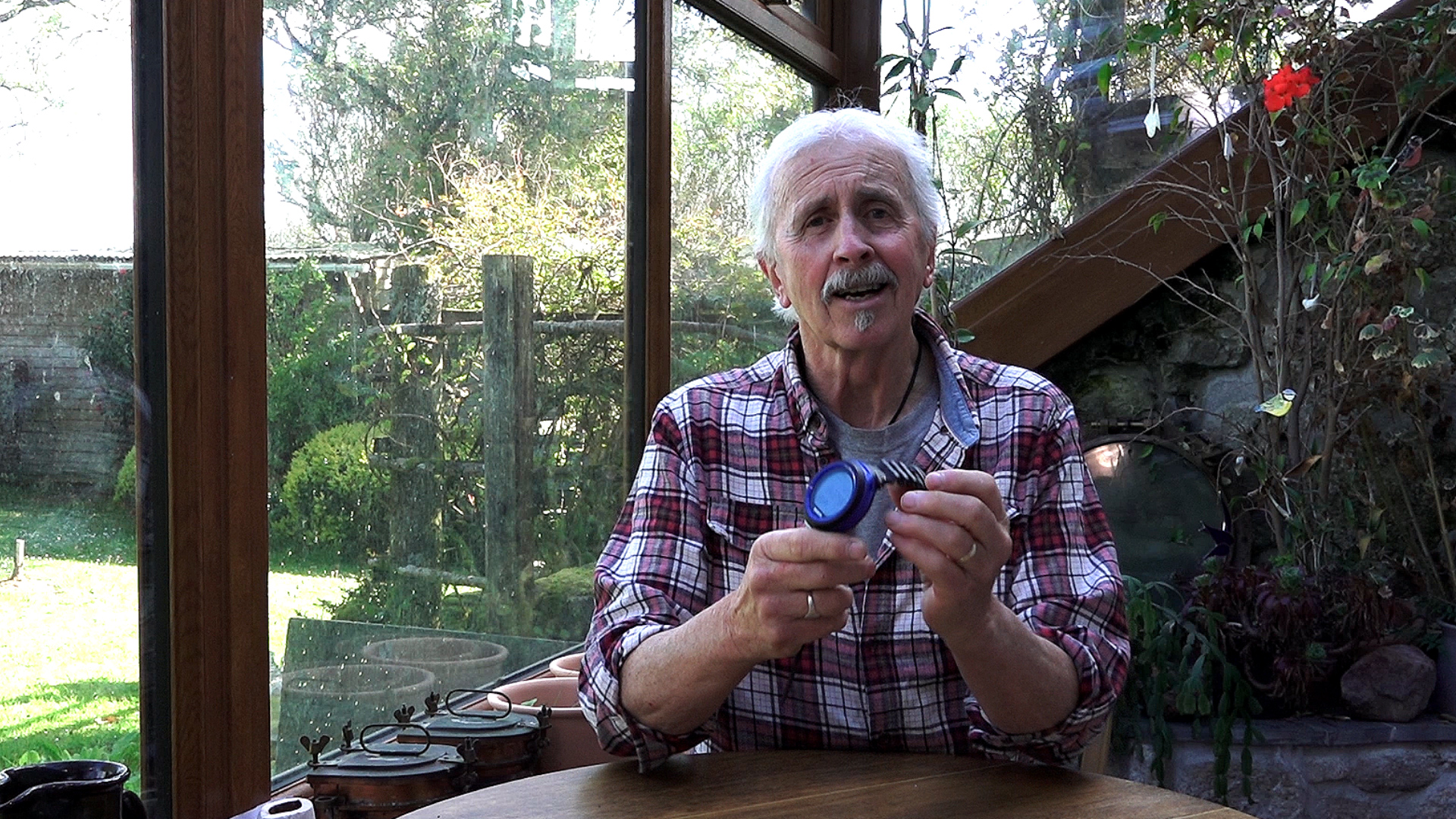
In a video recorded exclusively for Scubaverse.com, Jeff Goodman reviews the Puck4 Dive Computer from Mares.
Find out more about Mares dive equipment at www.mares.com.
-

 Blogs4 weeks ago
Blogs4 weeks agoDive Indonesia Part 3: Dive into Lembeh Trip Report
-

 Gear Reviews1 month ago
Gear Reviews1 month agoGEAR REVIEW – Revolutionising Diving Comfort: The Sharkskin T2 Chillproof Suit
-

 Blogs2 months ago
Blogs2 months agoMurex Resorts: Passport to Paradise!
-

 News3 months ago
News3 months agoPADI Teams Up with Wellness Brand Neuro to Drive Ocean Change and Create a Blue State of Mind
-

 Blogs3 months ago
Blogs3 months agoDiver Discovering Whale Skeletons Beneath Ice Judged World’s Best Underwater Photograph
-
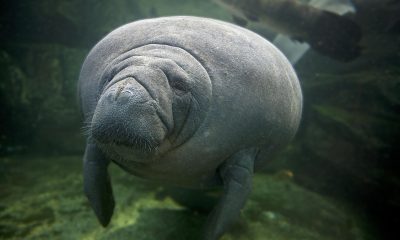
 Blogs2 months ago
Blogs2 months agoSeagrass Awareness Month brings critical food source for Manatees to centre stage
-

 Marine Life & Conservation3 months ago
Marine Life & Conservation3 months agoSave the Manatee Club launches brand new webcams at Silver Springs State Park, Florida
-
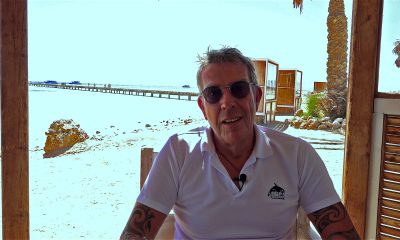
 Blogs2 months ago
Blogs2 months agoSOMABAY: Scubaverse interviews Wolfgang Clausen, General Manager, ORCA Dive Clubs



